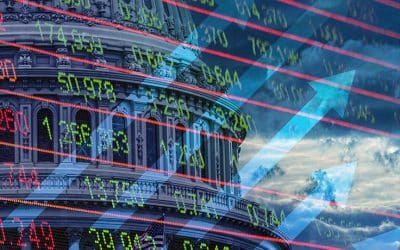“There’s good reason to think that this year will be a good one for the stock market”

Redacción Mapfre
Last year was a positive one for equity markets, although there are nuances: the largest increases were concentrated in a handful of U.S. companies, while across other geographies, including Europe, investor sentiment remained very negative due to weak growth.
“The European stock exchanges have more room for growth than the United States,” says Alberto Matellán, chief economist at MAPFRE Inversión, who adds that the fundamentals of U.S. companies remain solid. “There’s good reason to think that this year will be a good one.” Sectors likely to benefit include banking and consumption, especially luxury goods, thanks to rate cuts in the U.S. and especially if there’s good economic news in China.
Matellán points out that the factors determining markets movements are corporate earnings and growth, but this year, there are additional elements that could also have a major impact: liquidity, market sentiment and policy in its broadest sense.
“Monetary policy, fiscal policy, and economic policy. Politics will be very important this year, not only for the United States, but also in Europe,” he points out. One of the biggest unknowns for this year is the impact of Donald Trump's policies when he takes office. The chief economist emphasizes that tariffs are not good for the economy, recalling that Trump doesn’t always necessarily follow through on what he says out loud. With regard to liquidity, MAPFRE Inversión’s chief economist insists that flows to and from the market are essential and have proven to be positive in this first week of 2025.
In the currency markets, we’ve simultaneously lived with a strong dollar, thanks to the Federal Reserve’s monetary policy, and a weakened euro due to lackluster European growth and sentiment. “These circumstances continue to this day and will continue to be there in the short term, but it’s reasonable to expect that these trends could change over the next six months, which could cause the euro to strengthen,” he says.
What can we expect from central banks?
Investors will continue to look closely at monetary policy this year. As far as the Fed goes, Matellán would like to see a readjustment in expectations toward the markets. "The shutdown at the Fed is logical in the current economic context, and it’s justified because the inflation risks in the United States are higher than they seemed previously, and they’re growing pretty quickly. The market should be pricing that in," he says.
In Europe, we’re seeing “minimal” growth and inflation looks like it’s under control. "Do we need to keep cutting rates? Yes, but I’d like to hear a prudent message from the European Central Bank (ECB), because I think Europe has already hit bottom in this respect," he concluded.



